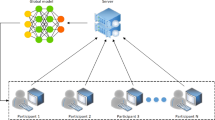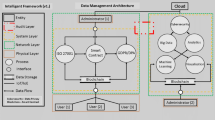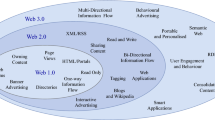Abstract
The accuracy and performance of deep neural network models become important issues as the applications of deep learning increase. For example, the navigation system of autonomous self-driving vehicles requires very accurate deep learning models. If a self-driving car fails to detect a pedestrian in bad weather, the result can be devastating. If we can increase the model accuracy by increasing the training data, the probability of avoiding such scenarios increases significantly. However, the problem of privacy for consumers and lack of enthusiasm for sharing their personal data, e.g., the recordings of their self-driving car, is an obstacle for using this valuable data. In Blockchain technology, many entities which cannot trust each other in normal conditions can join together to achieve a mutual goal. In this paper, a secure decentralized peer-to-peer framework for training the deep neural network models based on the distributed ledger technology in Blockchain ecosystem is proposed. The proposed framework anonymizes the identity of data providers and therefore can be used as an incentive for consumers to share their private data for training deep learning models. The proposed framework uses the Stellar Blockchain infrastructure for secure decentralized training of the deep models. A deep learning coin is proposed for Blockchain compensation.





Similar content being viewed by others
References
Li G, Yu Y (2018) Contrast-oriented deep neural networks for salient object detection. IEEE Trans Neural Netw Learn Syst 29(12):6038–6051
Abbasi MH, Majidi B, Eshghi M, Abbasi EH (2019) Deep visual privacy preserving for internet of robotic things. In: 2019 5th Conference on Knowledge Based Engineering and Innovation (KBEI), pp 292–296
Kumar K, Shrimankar DD (2018) F-DES: Fast and deep event summarization. IEEE Trans Multim 20(2):323–334
Fadaeddini A, Majidi B, Eshghi M (2018) A case study of generative adversarial networks for procedural synthesis of original textures in video games. In: 2018 2nd National and 1st International Digital Games Research Conference: Trends, Technologies, and Applications (DGRC), pp 118–122
Nazerdeylami A, Majidi B, Movaghar A (2019) Smart coastline environment management using deep detection of manmade pollution and hazards. In: 2019 5th Conference on Knowledge Based Engineering and Innovation (KBEI), pp 332–337
Fadaeddini A, Eshghi M, Majidi B (2018) A deep residual neural network for low altitude remote sensing image classification. In: 2018 6th Iranian Joint Congress on Fuzzy and Intelligent Systems (CFIS), 2018, pp 43–46
Weng J, Weng J, Zhang J, Li M, Zhang Y, Luo W (2018) Deepchain: auditable and privacy-preserving deep learning with blockchain-based incentive. Cryptology ePrint Archive, Report 2018/679, 2018
Goel A, Agarwal A, Vatsa M, Singh R, Ratha N (2019) Deepring: protecting deep neural network with blockchain. In: Proceedings of the IEEE Conference on Computer Vision and Pattern Recognition Workshops
Mendis GJ, Wu Y, Wei J, Sabounchi M, Roche R (2018) Blockchain as a service: a decentralized and secure computing paradigm. arXiv preprint arXiv:1807.02515
Salah K, Rehman MHU, Nizamuddin N, Al-Fuqaha A (2019) Blockchain for AI: review and open research challenges. IEEE Access 7:10127–10149
Mamoshina P et al (2018) Converging blockchain and next-generation artificial intelligence technologies to decentralize and accelerate biomedical research and healthcare. Oncotarget 9(5):5665
Konečný J, McMahan HB, Yu FX, Richtárik P, Suresh AT, Bacon D (2016) Federated learning: strategies for improving communication efficiency. arXiv preprint arXiv:1610.05492
McMahan B, Ramage D (2017) Federated learning: Collaborative machine learning without centralized training data. Google Research Blog, vol 3
Mendis GJ, Sabounchi M, Wei J, Roche R (2018) Blockchain as a service: an autonomous, privacy preserving, decentralized architecture for deep learning. arXiv preprint arXiv:1807.02515
Addair T Decentralized and distributed machine learning model training with actors
Liu Z et al (2019) A survey on applications of game theory in blockchain. arXiv preprint arXiv:1902.10865
Saad et al M (2019) Exploring the attack surface of blockchain: a systematic overview. arXiv preprint arXiv:1904.03487
Westerkamp M, Victor F, Küpper A (2018) Blockchain-based supply chain traceability: token recipes model manufacturing processes. In: 2018 IEEE International Conference on Internet of Things (iThings) and IEEE Green Computing and Communications (GreenCom) and IEEE Cyber, Physical and Social Computing (CPSCom) and IEEE Smart Data (SmartData). IEEE, pp 1595–1602
Wang S, Yuan Y, Wang X, Li J, Qin R, Wang F-Y (2018) An overview of smart contract: architecture, applications, and future trends. In: 2018 IEEE intelligent vehicles symposium (IV). IEEE, pp 108–113
Benet J (2014) Ipfs-content addressed, versioned, p2p file system. arXiv preprint arXiv:1407.3561
Konečný J, McMahan HB, Ramage D, Richtárik P (2016) Federated optimization: distributed machine learning for on-device intelligence. arXiv preprint arXiv:1610.02527
Shokri R, Shmatikov V (2015) Privacy-preserving deep learning. In: Proceedings of the 22nd ACM SIGSAC Conference on Computer and Communications Security, pp 1310–1321
Fadaeddini A, Majidi B, Eshghi M (2019) Privacy preserved decentralized deep learning: a blockchain based solution for secure AI-driven enterprise. In: International Congress on High-Performance Computing and Big Data Analysis, pp 32–40
Ye G, Liu D, Jhuo I-H, Chang S-F (2012) Robust late fusion with rank minimization. In: 2012 IEEE Conference on Computer Vision and Pattern Recognition. IEEE, pp 3021–3028
Bernstein DJ, Duif N, Lange T, Schwabe P, Yang B-Y (2012) High-speed high-security signatures. J Cryptogr Eng 2(2):77–89
Author information
Authors and Affiliations
Corresponding author
Additional information
Publisher's Note
Springer Nature remains neutral with regard to jurisdictional claims in published maps and institutional affiliations.
Rights and permissions
About this article
Cite this article
Fadaeddini, A., Majidi, B. & Eshghi, M. Secure decentralized peer-to-peer training of deep neural networks based on distributed ledger technology. J Supercomput 76, 10354–10368 (2020). https://doi.org/10.1007/s11227-020-03251-9
Published:
Issue Date:
DOI: https://doi.org/10.1007/s11227-020-03251-9




